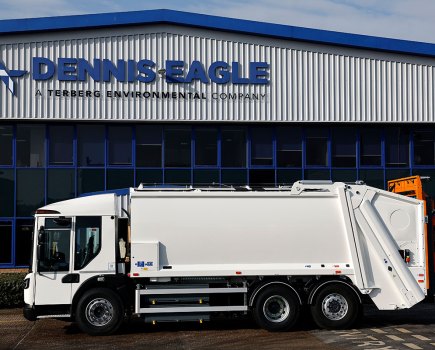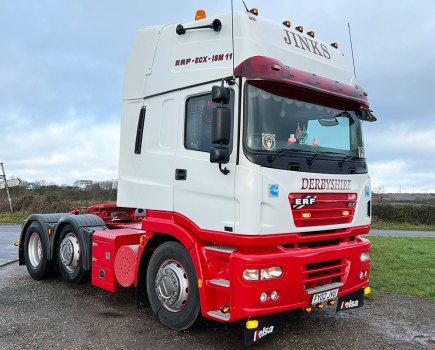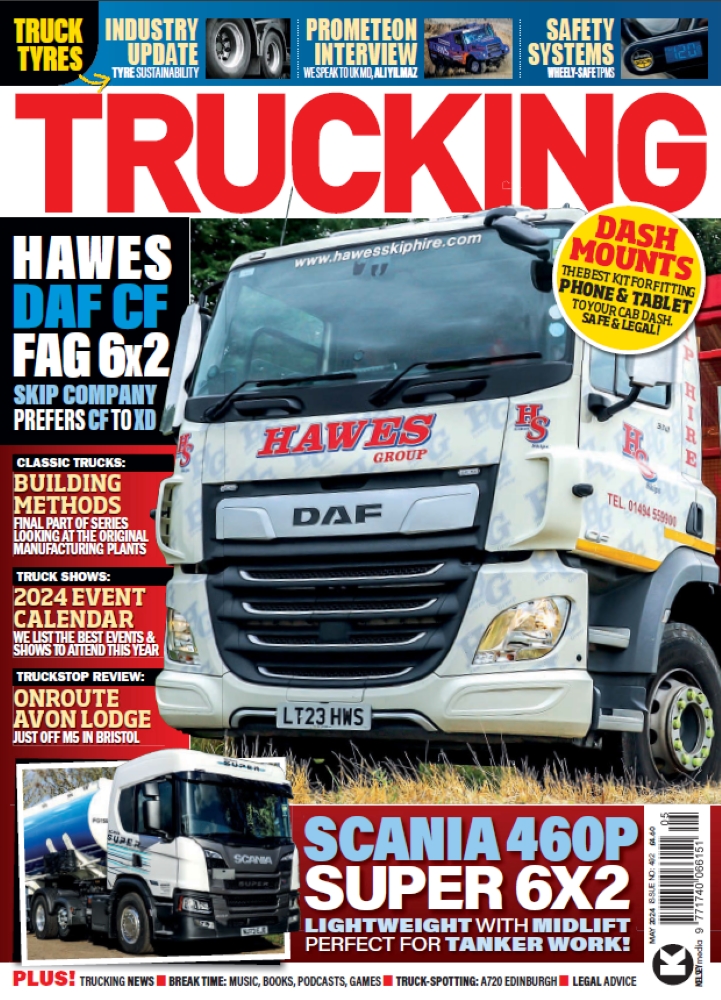Sponsored by Skipton Business Finance
In these difficult economic times, Skipton Business Finance is urging operators struggling with cash flow to take back control with the help of some tailor-made financial packages.
It is cashflow – or the lack thereof – that commonly kills haulage businesses. Money goes out of the business faster than it comes in, the gap between income and expenditure gets wider and wider, debts cannot be paid, and the firm goes to the wall.
It is a problem affecting more and more transport companies as their customers use every trick in the book to delay payment; and may of course be experiencing financial difficulties themselves.
A lifeline is available to help ensure hauliers do not end up being swallowed up by this financial quagmire however, and it is being offered by Skipton Business Finance (SBF). A wholly owned subsidiary of the 170-year-old Skipton Building Society, it offers companies a service called ‘invoice discounting’. It works like this:
The haulage firm carries out work for its clients as usual, raises an invoice, and assigns it to SBF. In return, SBF makes up to 90 per cent of the invoice’s face value available immediately for the haulier to draw on.
When the invoice is paid in 30, 60 or 90 days – or whatever the agreed payment terms are between the transport company and its client – then the haulier receives the remaining 10 per cent, less a payment to SBF.
“Cash is king, and up to 175 haulage companies are making use of this arrangement because of the way in which it helps them with their working capital,” SBF chief commercial officer, Matthew Shepherd, tells Trucking. “In effect, we are a working capital provider.”
Cost of security
So what does the service cost? Essentially, SBF is providing a short-term loan which covers the period that elapses between the date the invoice is raised, and the date it is settled.
“Every deal is different, but what we typically charge is the Bank of England base rate plus two- to 3.5 per cent,” Shepherd explains. SBF also charges a percentage service fee calculated in relation to the volume of finance business the client puts its way.
“Remember that it is a lot cheaper than employing a full-time credit controller,” Shepherd observes. “It’s also more flexible than a traditional bank overdraft, and we do not ask for a charge on property as security.”
But what happens if the company that has been invoiced goes bust, and as a consequence is unable to settle the outstanding invoice? That is an eventuality that should be covered by the haulier’s credit insurance policy, says Shepherd; and the haulage firm concerned would do well to check it has one.
SBF does not offer credit protection insurance at present, but plans to do so by the end of the first half of 2023. “Being able to offer the entire package will make us a one-stop shop,” Shepherd says.
Haulage is SBF’s second-biggest area of activity and Shepherd is well aware of the challenges the sector faces. “Using our service allows businesses to release capital which they can for example use to acquire vehicles,” he says. “Clients can draw down as much or as little as they need to. We don’t push money onto them.”
In this context, it is worth noting O-licence holders must be able to demonstrate they can call on sufficient funding for each vehicle they operate. If they cannot, then they risk having their licence revoked by the traffic commissioner.
Invoice factoring
SBF also offers ‘invoice factoring’. A slightly different service to invoice discounting, it involves SBF providing an outsourced collection team which takes payment on the haulier’s behalf. With invoice discounting, the haulage company retains full control of the relationship with its customer – a scenario which many hauliers may feel is preferable.
SBF deals with transport firms of all sizes.
“We’re happy to talk to one-, two- or three-man bands as well as larger companies, and to work with sums of money ranging from £50,000 to £50m,” Shepherd says.
“All of our customers have a dedicated relationship manager assigned to them, and all 110 of our employees – including our 15-strong sales team – are based in the UK. Our head office is in Skipton, North Yorkshire, and we have offices in London, Birmingham and Glasgow too.”
SBF does not offer HP, finance lease or contract hire agreements itself. “What we can do, though, is put hauliers in touch with finance brokers able to offer highly advantageous rates,” says Shepherd.
He confesses to being a little surprised that comparatively few accountants and financial advisers suggest to businesses they should opt for invoice financing, given the benefits it can bring. “As a consequence, when firms come to us and ask for the service because they have cashflow difficulties, then it can be a little bit too late to help,” he remarks.
He does not deny that resorting to such an arrangement had a stigma about it in the past. “Go back to the 1970s and 1980s, and many people viewed it as the last resort,” he agrees. Times have changed though, he says, and so have attitudes – and a number of wholly reputable businesses, SBF included, offer the facility. “If you make use of it, then you can maintain control of your firm,” Shepherd says.
Changing hands
Another area SBF is engaged in is helping transport companies acquire family-owned haulage operations whose owners are unable to pass the company on to the next generation; possibly because the sons and daughters have no interest in working in the transport industry. “We can fund the acquisition,” says Shepherd.
It is also engaged in arranging funding if the business is being transferred to an employee ownership trust. This means the staff end up owning the firm, usually with the former owners still involved in some capacity.
“Employee ownership is becoming increasingly popular, and we can help,” says Shepherd.
SBF has no doubt the services it can offer have a secure future in a challenging market. Says chief executive officer, Greg Bell: “By being part of the Skipton Building Society, one of the UK’s oldest and most-trusted financial institutions, our business model means we have no expensive shareholder dividends to pay.
“We can therefore focus on understanding our clients’ businesses and developing strong, long-lasting and mutually beneficial partnerships with customers and business intermediaries alike.”
For more information on how Skipton Business Finance can help your business go to Skipton Business Finance – Financial Services






